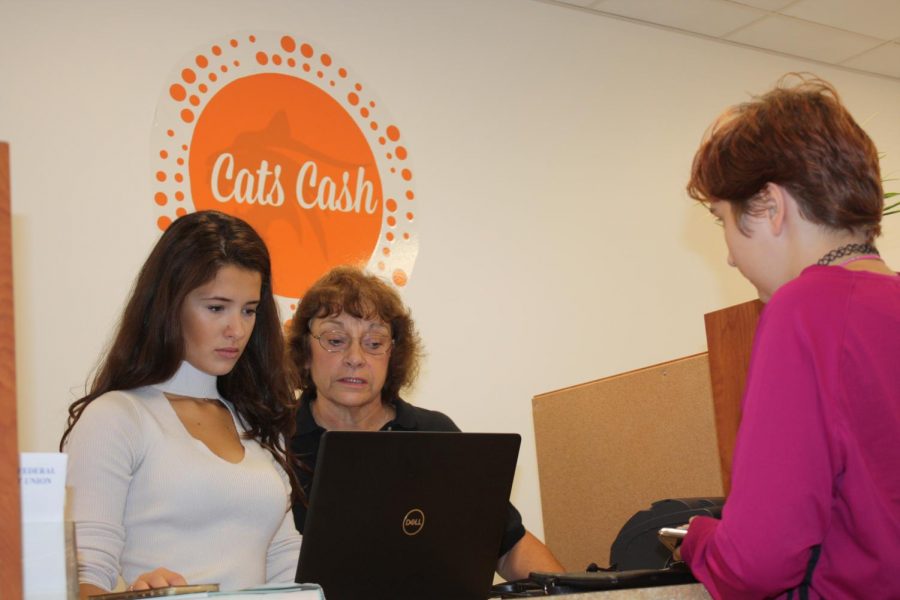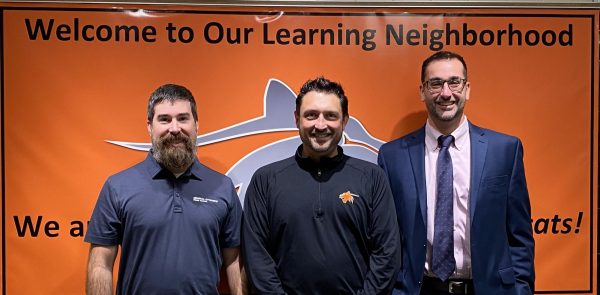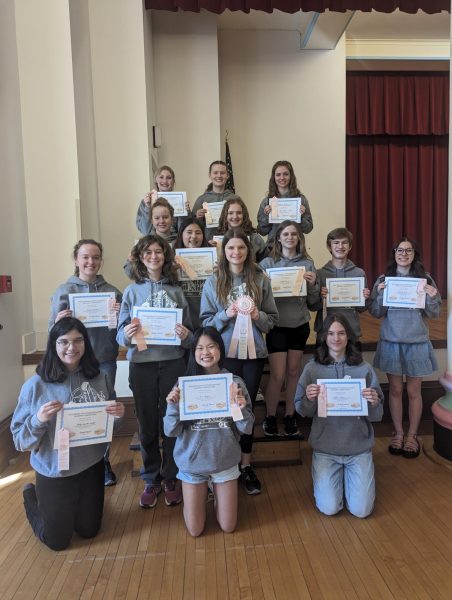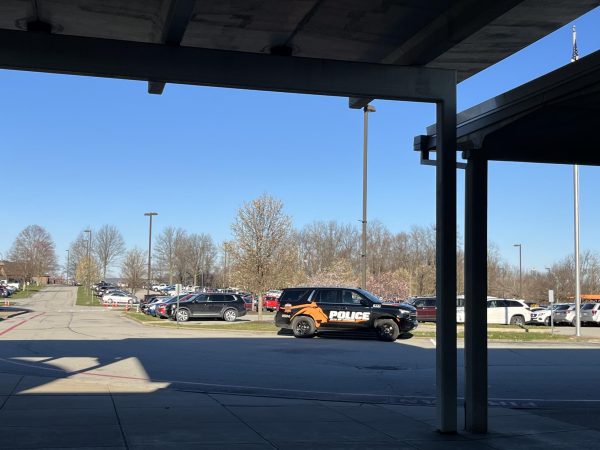Credit Union opens branch in Greater Latrobe Senior High School
Lesco Federal Credit Union recently opened a branch in Greater Latrobe Senior High School.
The student run branch, which was partially funded by a grant from the Pennsylvania Credit Union Foundation, is open two days a week and is accessible to all students and staff during Lunch and Learn.
Student Branch Supervisor, Beverly Jenkins, is on site when the branch is open.
Students can open a checking account and deposit and withdraw money. Greater Latrobe is grateful for this opportunity for students to learn about financial responsibility.
Lesco Financial Literacy Advisor, Taylor Kilmer, oversees the branch and helps to educate students about credit unions.
Students currently working in the Credit Union are Alex Bisignani, Nick Buerger, Dominic Hart, Taylor Hochard, and Sadie Wetzel.
Lunch and Learn is new to the Senior High School this year and it is a 65 minute time period.
Lunch and Learn gives students the opportunity to meet with teachers and other students, to complete homework, and to pursue other interests. This flexible time gives students options and prepares them for life after high school when they will have to prioritize and make decisions.
Lesco Federal Credit Union was chartered on June 20, 1950 by employees of Latrobe Electric Steel Company, now Carpenter Technology corporation. The first “office” was in the treasurer’s home, followed by a small garage office near the steel plant. On April 4, 1960, Lesco Federal Credit Union moved to 6 Avenue D, where it remained for the next 55 years, until moving to its present location on Ligonier Street in Latrobe. In 2005, Lesco became a community credit union, opening its membership to Westmoreland County.
As a credit union, Lesco is a member-owned, full service financial institution. When you become a member, you are an owner of the credit union. Members elect a volunteer board of directors who are responsible for setting policy. Day-to-day operations are handled by a dedicated staff.













